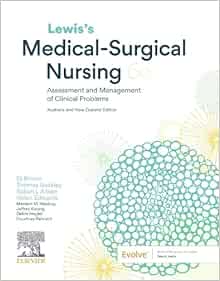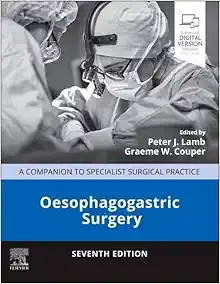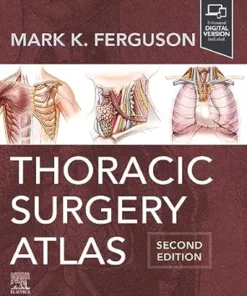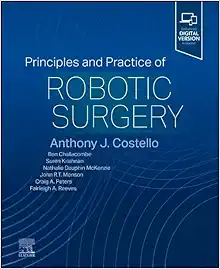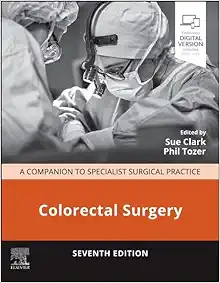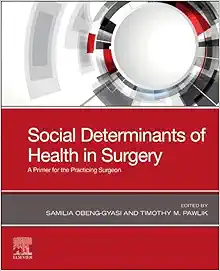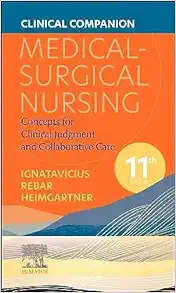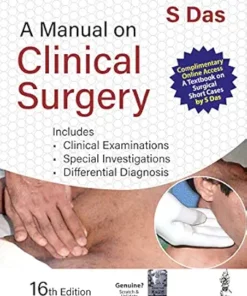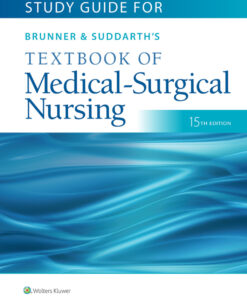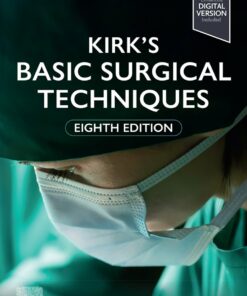Understanding the Benefits of General Surgery: What You Need to Know
Discover the Benefits of General Surgery
General surgery is a medical specialty that focuses on the diagnosis and treatment of diseases and injuries of the body. It involves a wide range of procedures, from minimally invasive laparoscopic surgeries to complex open operations. With the help of general surgeons, patients can benefit from improved quality of life, reduced pain, and improved overall health. If you are considering general surgery, it is important to understand the risks and benefits associated with the procedure. To learn more about general surgery and its potential benefits, visit SurgeryBook.net. This website provides comprehensive information about general surgery, including detailed descriptions of common procedures, potential risks, and recovery times. You can also find helpful resources for finding a qualified surgeon in your area. Take the first step towards improving your health and wellbeing by exploring the possibilities of general surgery today.
GENERAL SURGERY
Modern Surgical Pathology Through the Expert Eyes of APSS-USCAP 2024, 5th Edition (Videos)
GENERAL SURGERY
GENERAL SURGERY
GENERAL SURGERY
GENERAL SURGERY
Thoracic Surgery Atlas, 2nd Edition (True PDF from Publisher)
GENERAL SURGERY
GENERAL SURGERY
GENERAL SURGERY
FAP Allgemein- und Viszeralchirurgie, 3rd Edition (German Edition) (True PDF from Publisher)
GENERAL SURGERY
Clinical Companion for Medical-Surgical Nursing, 11th Edition (True PDF from Publisher)
GENERAL SURGERY
GENERAL SURGERY
GENERAL SURGERY
GENERAL SURGERY
GENERAL SURGERY
GENERAL SURGERY
Behind the Knife – ABSITE Podcast Companion, 3rd edition (EPUB)
Introduction
Understanding the benefits of general surgery is essential for anyone considering this type of medical procedure. General surgery is a broad field that encompasses many different types of operations, from minor procedures to major operations. It can be used to treat a wide range of conditions, from cancer to hernias. In this article, we'll discuss the various benefits of general surgery and what you need to know before deciding if it's right for you. We'll also provide an overview of the risks associated with general surgery and how to prepare for the procedure. With this information, you'll be better equipped to make an informed decision about whether or not general surgery is the best option for your health needs.
Overview of General Surgery: Types, Procedures, and Benefits
General surgery is a medical specialty that focuses on the diagnosis, treatment, and prevention of diseases and injuries in the body. It encompasses a wide range of procedures, from minimally invasive laparoscopic surgeries to complex open operations. General surgeons are trained to perform a variety of procedures, including abdominal, endocrine, gastrointestinal, vascular, and thoracic surgeries.
Types of General Surgery
General surgery covers a broad range of procedures, including:
Abdominal Surgery: This type of surgery involves the abdomen, which includes the stomach, intestines, liver, gallbladder, appendix, and other organs. Abdominal surgery can be used to treat conditions such as hernias, appendicitis, gallstones, and tumors.
Endocrine Surgery: Endocrine surgery is used to treat conditions related to the endocrine system, such as thyroid cancer, parathyroid disease, and adrenal gland tumors.
Gastrointestinal Surgery: Gastrointestinal surgery is used to treat conditions of the digestive system, such as ulcers, Crohn’s disease, and colorectal cancer.
Vascular Surgery: Vascular surgery is used to treat conditions of the blood vessels, such as aneurysms, varicose veins, and arterial blockages.
Thoracic Surgery: Thoracic surgery is used to treat conditions of the chest, such as lung cancer, emphysema, and pleural effusions.
Procedures
General surgeons use a variety of techniques to perform their procedures. These include:
Laparoscopy: Laparoscopy is a minimally invasive procedure that uses a thin, lighted tube called a laparoscope to view the inside of the body. The surgeon can then use small instruments to perform the procedure.
Open Surgery: Open surgery is a more traditional approach that requires a larger incision to access the area of the body being treated.
Robotic Surgery: Robotic surgery is a minimally invasive technique that uses robotic arms to perform the procedure.
Benefits
General surgery offers many benefits, including:
Minimally Invasive: Many general surgery procedures are minimally invasive, meaning they require smaller incisions and less recovery time.
Less Pain: Minimally invasive procedures often result in less pain and discomfort for the patient.
Shorter Hospital Stay: Because of the minimally invasive nature of many general surgery procedures, patients often have shorter hospital stays.
Improved Outcomes: General surgery procedures often result in improved outcomes for patients, with fewer complications and better long-term results.
Preparing for General Surgery: What to Expect
Preparing for general surgery can be a daunting experience, but it doesn’t have to be. Knowing what to expect and taking the necessary steps to prepare can help make the process smoother and less stressful.
Before your surgery, you will likely meet with your surgeon to discuss the procedure and any questions or concerns you may have. Your doctor will also review your medical history and medications, and may order additional tests such as blood work or imaging studies. During this time, it is important to be honest and open about any health issues or medications you are taking.
Your doctor will provide you with instructions on how to prepare for your surgery. This may include fasting before the procedure, avoiding certain medications, and stopping smoking if you are a smoker. It is important to follow these instructions carefully to ensure the best possible outcome.
On the day of your surgery, you will need to arrive at the hospital or surgical center early. You will be asked to change into a hospital gown and may be given an IV line. Depending on the type of surgery, you may receive anesthesia or sedation. After the procedure, you will be taken to a recovery room where you will be monitored until you are ready to go home.
It is important to have a friend or family member available to drive you home after your surgery. You should also plan to rest and take it easy for the first few days following your procedure. Your doctor will provide you with specific instructions on how to care for yourself during your recovery period.
Preparing for general surgery can be a stressful experience, but understanding what to expect and taking the necessary steps to prepare can help make the process smoother and less intimidating. Following your doctor’s instructions and having a support system in place can help ensure a successful outcome.
Post-Surgery Care: Recovery Tips and Guidelines
Post-surgery care is an important part of the recovery process. It is essential to follow the instructions given by your doctor and take all necessary precautions to ensure a successful recovery. Here are some tips and guidelines for post-surgery care:
1. Follow your doctor’s instructions: Your doctor will provide you with specific instructions on how to care for yourself after surgery. Make sure to follow these instructions carefully, as they are designed to help you heal properly and reduce the risk of complications.
2. Take medications as prescribed: Your doctor may prescribe medications to help manage pain or reduce the risk of infection. Make sure to take these medications as directed and do not skip doses.
3. Get plenty of rest: Rest is essential for healing after surgery. Make sure to get plenty of sleep and avoid strenuous activities until your doctor gives you the okay.
4. Eat a healthy diet: Eating a balanced diet can help speed up the healing process. Make sure to include plenty of fruits, vegetables, lean proteins, and whole grains in your diet.
5. Avoid smoking and drinking alcohol: Smoking and drinking alcohol can slow down the healing process and increase the risk of complications. Avoid these substances while you are recovering from surgery.
6. Exercise regularly: Exercise can help improve circulation and reduce the risk of blood clots. Talk to your doctor about what types of exercises are safe for you to do during your recovery.
7. Keep your incision clean and dry: Make sure to keep your incision clean and dry to reduce the risk of infection. Your doctor may recommend using a special ointment or dressing to protect the area.
8. Seek medical attention if needed: If you experience any signs of infection or other complications, make sure to seek medical attention right away.
Following these tips and guidelines can help ensure a successful recovery after surgery. Make sure to talk to your doctor if you have any questions or concerns about post-surgery care.
Risks and Complications Associated with General Surgery
General surgery is a type of medical procedure that involves the diagnosis, treatment, and prevention of diseases and conditions through the use of surgical techniques. It is a broad field of medicine that encompasses many different types of surgeries, including abdominal, cardiovascular, orthopedic, and plastic surgery. While general surgery can be beneficial in treating certain medical conditions, it also carries risks and potential complications.
The most common risks associated with general surgery include infection, bleeding, blood clots, and reactions to anesthesia. Infection is a risk with any type of surgery, as bacteria can enter the body through the incision site. Bleeding is another risk, as the surgeon must make an incision in order to access the area being operated on. Blood clots can form in the veins or arteries near the incision site, which can lead to serious health complications if not treated promptly. Finally, reactions to anesthesia are possible, as some people may have an adverse reaction to the drugs used during the procedure.
Other risks and complications associated with general surgery include organ damage, nerve damage, scarring, and post-operative pain. Organ damage can occur if the surgeon accidentally damages an organ while performing the surgery. Nerve damage can occur if the nerves are cut or damaged during the procedure. Scarring is a common side effect of any type of surgery, as the incision site will leave a visible scar. Post-operative pain is also common, as the body needs time to heal from the trauma of the surgery.
Finally, there is the risk of death associated with general surgery. While this is rare, it is still a possibility, especially if the patient has underlying medical conditions or if the surgery is particularly complex.
Overall, general surgery carries risks and potential complications, but these risks can be minimized by choosing an experienced and qualified surgeon, following pre- and post-operative instructions, and taking all necessary precautions before and after the procedure.
Cost Considerations for General Surgery Procedures
When considering a general surgery procedure, cost is an important factor to consider. General surgery procedures can range from minor outpatient procedures to major operations that require hospitalization and lengthy recovery times. The cost of a general surgery procedure will depend on the type of procedure being performed, the complexity of the procedure, the facility where the procedure is being performed, and the insurance coverage of the patient.
The cost of a general surgery procedure can vary greatly depending on the type of procedure being performed. Minor outpatient procedures such as hernia repairs or gallbladder removals may cost several thousand dollars, while more complex procedures such as organ transplants or open-heart surgeries can cost tens of thousands of dollars. In addition, the cost of a general surgery procedure may also be affected by the complexity of the procedure. For example, a simple laparoscopic procedure may cost less than an open procedure due to the shorter operating time and fewer resources required.
The facility where the procedure is being performed can also affect the cost of a general surgery procedure. Procedures performed in a hospital setting may cost more than those performed in an outpatient clinic or ambulatory surgical center. Additionally, the cost of a general surgery procedure may be affected by the insurance coverage of the patient. Patients with private insurance may have lower out-of-pocket costs than those with public insurance or no insurance at all.
When considering a general surgery procedure, it is important to take into account all of the potential costs associated with the procedure. This includes not only the cost of the procedure itself, but also any additional costs such as hospital fees, anesthesia fees, and post-operative care. It is also important to understand the insurance coverage of the patient and any potential out-of-pocket costs that may be incurred. By taking all of these factors into consideration, patients can make informed decisions about their general surgery procedures and ensure they are receiving the best possible care at the most affordable price.
Conclusion
In conclusion, general surgery is a beneficial and important field of medicine that can help improve the quality of life for many individuals. It can provide relief from pain, correct deformities, and even save lives. Understanding the benefits of general surgery is essential for anyone considering this type of medical care. With the right knowledge and preparation, you can make an informed decision about your health and well-being.



